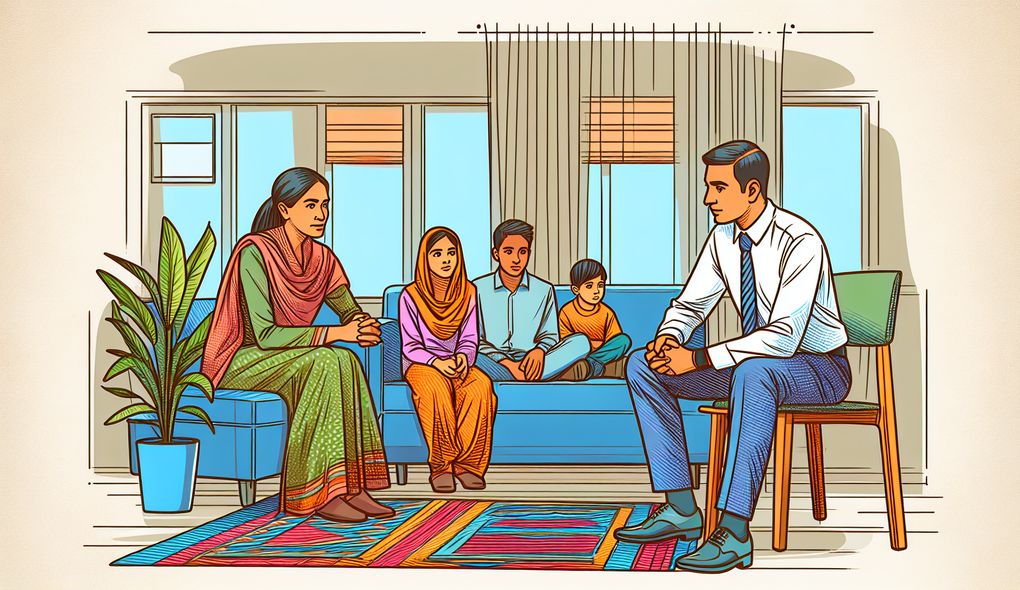Describe a situation where you had to mentor junior staff in case management.
SENIOR LEVEL

Sample answer to the question:
In my previous role as a Senior Case Worker, I had the opportunity to mentor junior staff in case management. One situation that comes to mind is when I was assigned a new junior case worker who was struggling with managing complex cases. I took the time to sit down with them and understand their challenges and areas for improvement. I provided guidance and shared my own experiences and strategies for navigating complex cases. I also encouraged them to ask questions and seek clarification whenever needed. Over time, I noticed a significant improvement in their confidence and ability to handle complex cases. It was rewarding to see them grow and develop under my mentorship.
Here is a more solid answer:
In my previous role as a Senior Case Worker, I had the opportunity to mentor a junior staff member who was struggling with managing complex cases. The first step I took was to establish an open and supportive relationship with them. I actively listened to their concerns and challenges, validating their experiences and creating a safe space for them to express themselves. I then provided them with clear guidance and shared my own experiences in similar situations. I encouraged them to ask questions and seek clarification whenever needed. Additionally, I identified areas where they needed additional training and arranged for workshops and educational resources to help build their skills. Through regular check-ins and feedback, I monitored their progress and provided constructive criticism to help them improve. Over time, I saw a significant improvement in their confidence and ability to handle complex cases. This experience highlighted my strong interpersonal and communication skills, leadership abilities, and problem-solving capabilities.
Why is this a more solid answer?
The solid answer provides a more detailed description of the candidate's approach to mentoring junior staff in case management. It includes specific examples of how they established a supportive relationship, actively listened to concerns, provided guidance and shared experiences, identified areas for improvement, and monitored progress. It also mentions the positive outcome of the mentorship. However, it can be further improved by including more specific details and examples of the candidate's leadership abilities and problem-solving capabilities.
An example of a exceptional answer:
In my previous role as a Senior Case Worker, I had the opportunity to mentor a junior staff member who was struggling with managing complex cases. To address this challenge, I implemented a comprehensive mentoring plan that included regular one-on-one meetings, case shadowing, and skill development workshops. During our meetings, I actively listened and asked probing questions to gain a deeper understanding of their challenges. I then tailored my guidance and feedback to their individual needs, leveraging my extensive experience in case management. Additionally, I encouraged them to reflect on their own strengths and weaknesses, fostering a growth mindset. When faced with complex cases, I guided them through a systematic problem-solving process, teaching them how to prioritize tasks, analyze information, and make informed decisions. I also involved them in policy development discussions, empowering them to contribute their ideas and perspectives. As a result of this holistic mentoring approach, the junior staff member significantly improved their case management skills and achieved positive outcomes for their clients. This experience showcased my exceptional interpersonal and communication skills, strong leadership abilities, and strategic problem-solving capabilities.
Why is this an exceptional answer?
The exceptional answer provides a comprehensive and detailed account of the candidate's mentoring experience. It highlights the candidate's implementation of a comprehensive mentoring plan that includes various strategies and activities to support the junior staff member's development. It also emphasizes the candidate's exceptional interpersonal and communication skills, strong leadership abilities, and strategic problem-solving capabilities. The answer demonstrates the candidate's ability to tailor their approach to individual needs, involve the junior staff member in policy development, and achieve significant improvements in their case management skills. Overall, the answer showcases the candidate's exceptional mentorship abilities and their potential to contribute to the organization's development.
How to prepare for this question:
- Reflect on your past experiences mentoring junior staff in case management. Think about specific situations where you faced challenges and how you overcame them.
- Consider the strategies and activities you utilized to support the development of junior staff members. Were there any particular mentoring plans or programs that you implemented?
- Identify examples where you demonstrated exceptional interpersonal and communication skills, strong leadership abilities, and problem-solving capabilities when mentoring junior staff.
- Highlight the positive outcomes that were achieved through your mentorship. How did the junior staff member grow and develop as a result of your guidance?
- Familiarize yourself with case management best practices and ethical considerations to demonstrate your expertise in the field.
What are interviewers evaluating with this question?
- Interpersonal Skills
- Communication Skills
- Leadership
- Problem-solving

